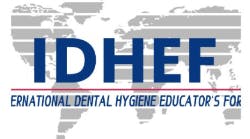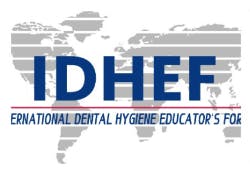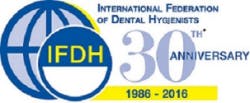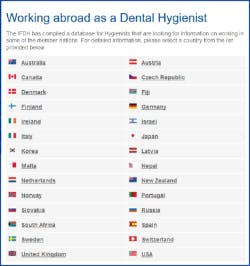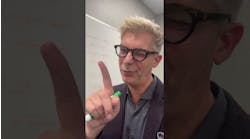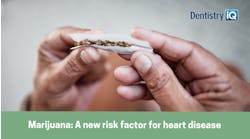By Maria Perno Goldie, RDH, MS
I often receive queries about dental hygiene education programs around the world, as well as working in an international capacity as a dental hygienist. I will shed some light on these topics in this article.
Every country has their own educational standards for dental hygiene education, with great variations. On the more rigorous side, we have the Netherlands who went from a two-year curriculum to a four-year higher professional education curriculum.(1)
In the 50 years since the dental hygiene profession started in the Netherlands, change has occurred rapidly. Dental hygienists in the past were required to practice under the supervision of a dentist. This changed in 1992 to a referral from a dentist system, and again in 2006, when dental hygienists were able to have direct access to the public, and vice versa.(1) Over one-third of the dental hygienists working do so in an independent practice.
In the United States, entry-level dental hygiene education is under the auspices of the Commission on Dental Education (CODA). This includes certificate, associate, and baccalaureate degree programs. Certificate and associate degree programs are typically for two years. There are also degree completion programs, usually accredited by an educational institution such as a university.
For more on the Commission on Dental Accreditation Accreditation Standards for Dental Hygiene EducationPrograms, visit this website.(2) There are also countries that require less than two years of education.
The meeting was started by Sylvia Fresmann of Germany and me. This year we have speakers from the United States, Australia, Japan, and Portugal. There will also be a panel discussion featuring Ann Battrell, MSDH, of the American Dental Hygienists’ Association (ADHA); Tami J. Grzesikowski, RDH, MEd., of the American Dental Education Association (ADEA); and Robyn Watson, RDH, BSc, MPA, president of the International Federation of Dental Hygienists (IFDH).
At the forum, there will be a focus on introducing technology into the curriculum and patient education, interprofessional education, corporate partnering, teaching evidence-based methodology, submitting a scientific paper, and more. For more information, email me (see below) and I will send the program and registration information. There is also a IDHEF Facebook page.(3)
There is also the International Federation of Dental Educators and Associations (IFDEA), “a global community of dental educators who have joined together to improve oral health worldwide by sharing knowledge and raising standards.”(4) The group focuses on dental rather than dental hygiene education, and there are no dental hygienists on their board of directors.
The IFDH also offers the IFDH Education Academy, an international continuing education resource for dental hygienists. Courses are offered on the IFDH Education Academy webpage at discounted rates for IFDH Individual Members and members of IFDH Association Members. The United States is a member through the ADHA.
- Procedures and/or documents that are necessary to be able to work in a country
- The official licensing body in the country
- Special conditions that may apply for hygienists who obtain employment
- Contacts for a work permit and/or visa
- Languages spoken
- Required examinations.
- Information on the local working environment, scope of practice, standards tasks performed, and country statistics.
There are also countries that have exchange programs for dental hygiene students. Some dental hygiene students travel to other parts of the world as a part of their dental hygiene educational experience. For example, Old Dominion University School of Dental Hygiene is partnering with Physicians for Peace and the University of Nicaragua-León Dental School to establish the first dental hygiene education program in Central America.(5) Old Dominion had also international alliances with Saudi Arabia and Germany. The University of New Mexico's Division of Dental Hygiene established its first international oral health outreach program in Granada, Nicaragua, about five years ago. There are now dental hygiene programs in Brazil, Pakistan, and Nepal, to name a few.
So, reach for your passport, pack your bags, and expand your horizons! We are now a world without borders.
References
- Jongbloed-Zoet C, Bol-van den Hil EM, La Rivière-Ilsen J, van der Sanden-Stoelinga MSE. Dental hygienists in The Netherlands: the past, present and future. Int J Dent Hygiene 10, 2012; 148–154 DOI: 10.1111/j.1601-5037.2012.00573.x
- http://www.ada.org/~/media/CODA/Files/dh.pdf?la=en.
- https://www.facebook.com/International-Dental-Hygiene-Educators-Forum-699423350147607/.
- http://www.ifdea.org.
- http://www.ifdh.org.
- http://www.odu.edu/dental.
